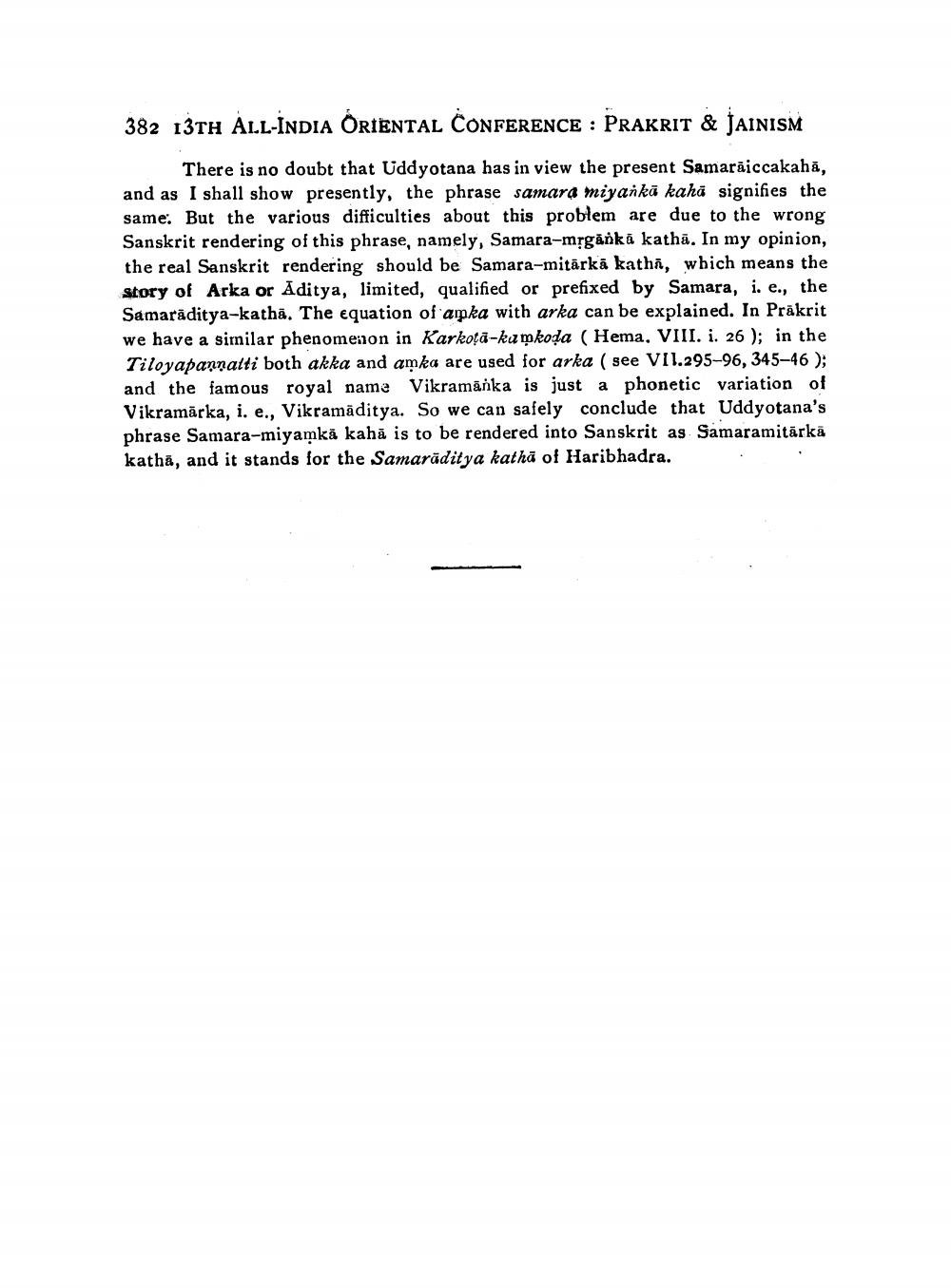Book Title: Kavi Paramesvara Or Paramessthi Author(s): A N Upadhye Publisher: A N Upadhye View full book textPage 8
________________ 382 13TH ALL-INDIA ORIENTAL CONFERENCE : PRAKRIT & JAINISM There is no doubt that Uddyotana has in view the present Samaraiccakaha, and as I shall show presently, the phrase samara miyanka kaha signifies the same. But the various difficulties about this problem are due to the wrong Sanskrit rendering of this phrase, namely, Samara-mpgarka katha. In my opinion, the real Sanskrit rendering should be Samara-mitarka katha, which means the story of Arka or Aditya, limited, qualified or prefixed by Samara, i. e., the Samaraditya-katha. The equation of amka with arka can be explained. In Prakrit we have a similar phenomenon in Karkota-kankoda (Hema. VIII. i. 26 ); in the Tiloyapannatti both akka and amka are used for arka ( see VII.295-96, 345-46 ); and the famous royal name Vikramanka is just a phonetic variation of Vikramarka, i. e., Vikramaditya. So we can safely conclude that Uddyotana's phrase Samara-miyamka kaha is to be rendered into Sanskrit as Samaramitarka katha, and it stands for the Samaraditya katha of Haribhadra.Page Navigation
1 ... 6 7 8
